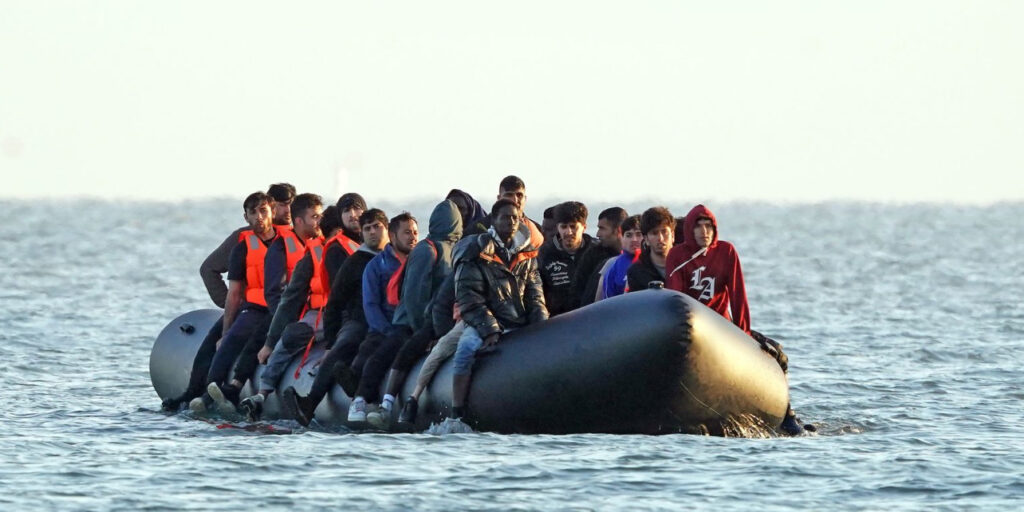The influx of small boats crossing the English Channel tends to peak on weekends, with data revealing that 40% of total arrivals last year occurred on Saturdays and Sundays.
Analysis suggests that this pattern might be due to less rigorous border patrols by French authorities on these days.
A former senior Home Office official highlighted that criminal groups have noted reduced engagement from French border forces over the weekend.
Similarly, a past immigration minister expressed frustration over the lack of control over French operational activities despite significant financial contributions from the UK, amounting to nearly £500 million in 2023 to police the Calais coast.
There’s a theory that strategic interests might lead France to maintain the status quo, despite appearances of active border management. Yet, when confronted with these allegations, representatives from France firmly denied any reduction in weekend staffing.
Marc de Fleurian, a Calais MP from Marine Le Pen’s National Rally, criticized the blame directed at France as simplistic and cowardly. Pierre Henri Dumont, another local MP, argued that the number of police officers makes little difference to the inevitability of crossings.
The pattern may also be influenced by logistical elements within smuggling networks, such as the availability of boat engines and parts typically delivered on Fridays, and the use of part-time workers who are available more on weekends.
Furthermore, the lack of intervention by French police once boats are launched and less crowded waterways on weekends may facilitate departures from inland channels.
Additionally, it’s noted that migrants often rely on public transport to reach departure points, which has more limited schedules on weekends.
Home Office analysis also suggests a correlation with weather conditions, with a disproportionate number of suitable crossing days occurring over weekends in 2024. However, this factor alone does not fully explain the consistent trend of higher weekend crossings over several years.


